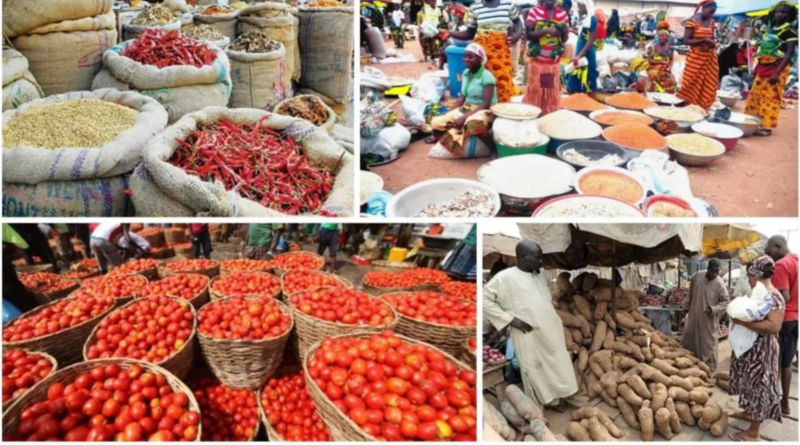1
As Nigeria strives to secure its food future, experts say over the decades, limited access to credit has remained one of the greatest bottlenecks to agricultural growth.
They said that the missing link in unlocking the country’s vast agricultural potential lies not only in infrastructure or mechanisation but in sustainable and inclusive financing models that can empower smallholder farmers and agribusinesses.
For many in the agricultural value chain, traditional bank loans remain inaccessible due to high collateral demands and short repayment cycles. This reality has left thousands of small-scale producers unable to purchase improved seeds, fertilisers, or mechanised services.
Stakeholders in separate interviews with Daily Independent pointed out that despite being responsible for the bulk of food production, smallholder farmers still face high interest rates, inadequate collateral systems, and weak risk-sharing frameworks, leaving many without the means to scale up production or adopt modern technologies.
They agree that while infrastructure, mechanisation, and climate resilience remain critical to agricultural transformation, financing remains the foundation upon which all other reforms rest. They are of the opinion that the time has come to rethink the nation’s agricultural finance structure through contract farming, zero-interest loan schemes, and cooperative-based investment models.
According to Dr. Ayoola Oduntan, President of the Feed Industry Practitioners Association of Nigeria (FIPAN), “Agri-SMEs and smallholders face very large financing shortfalls; formal credit for agriculture is extremely limited relative to need. This limits inputs, mechanisation, storage, and scaling.”
He explained that doubling credit flow to productive agriculture within five years would be possible if both government and private sector partners commit to blended finance solutions.
“Government should capitalise and expand risk-sharing facilities and partial credit guarantees, while directing central bank incentives toward bankable value chains—not just subsidised inputs,” Oduntan advised.
He also urged private investors and fintech platforms to scale tools such as invoice financing, warehouse receipts, and pay-as-you-harvest loans integrated with mobile payment systems.
Expanding index-based crop and weather insurance, he added, would de-risk lending to farmers and encourage banks to provide longer-term loans.
Oduntan noted that beyond funding inputs, investment must also target storage, logistics, and value chain integration, to minimise post-harvest losses and improve farmers’ income.
“If we harness our natural resources wisely, empower our farmers, and sustain reforms, then the promise of agriculture as the true driver of food security, industrialisation, and national prosperity can yet be fulfilled,” he said.
Aolat Idowu-Agbelekale, the Chief Executive Officer of Arcom Treasures, believes that “innovative financing models, like contract farming, zero interest rate for farmers, and long-term structural investment on farming, could help address the credit gap for smallholder farmers.”
She emphasised that for Nigeria to regain its lost agricultural glory, the government must reprogramme policies to be “consistent, favourable, and result-oriented,” while private investors should channel more funds toward the development of farm settlements, research institutes, and modernised farming techniques.
Agbelekale added that consistent investment in regional specialisation, value-chain development, and export infrastructure would also open new markets for Nigerian produce and make agriculture a viable business for youths and investors.
Sulaiman Taofeek, a stakeholder in the poultry value chain, also highlighted that limited access to affordable credit continues to hinder farmers’ ability to invest in their farms.
He called for targeted financing schemes with favourable interest rates and repayment terms, stressing that dedicated agricultural microfinance banks and low-interest loans could empower farmers to boost productivity.
“The government should establish well-regulated cooperatives and targeted agricultural funds, while the private sector co-finances farms, factories, and agricultural infrastructure through incentive-based partnerships,” Taofeek said.
He stressed that increasing agricultural expenditure—particularly in irrigation systems, storage facilities, and roads—would not only enhance productivity but also make the sector more attractive for investors.
Taofeek further called for climate-resilient financing frameworks that support farmers to adopt drought-resistant crops, smart irrigation systems, and digital farm technologies.
He noted that strengthening regulatory frameworks for food safety and traceability, would also enhance Nigeria’s export potential and boost consumer trust.
Building on this, Austine Adeniba, COO of Eliakim Integrated Services Limited, urged banks and financial institutions to work with the government to de-risk agricultural finance through specialised insurance products and reliable data systems.
According to him, “Using verifiable data—such as digital farm mapping—as collateral can increase lending confidence and reduce the perception of agriculture as a high-risk sector,” Adeniba said.
He added that such innovations would make it easier for farmers and agribusinesses to access credit without traditional land titles or large collateral, while helping financial institutions better assess risks and returns.







